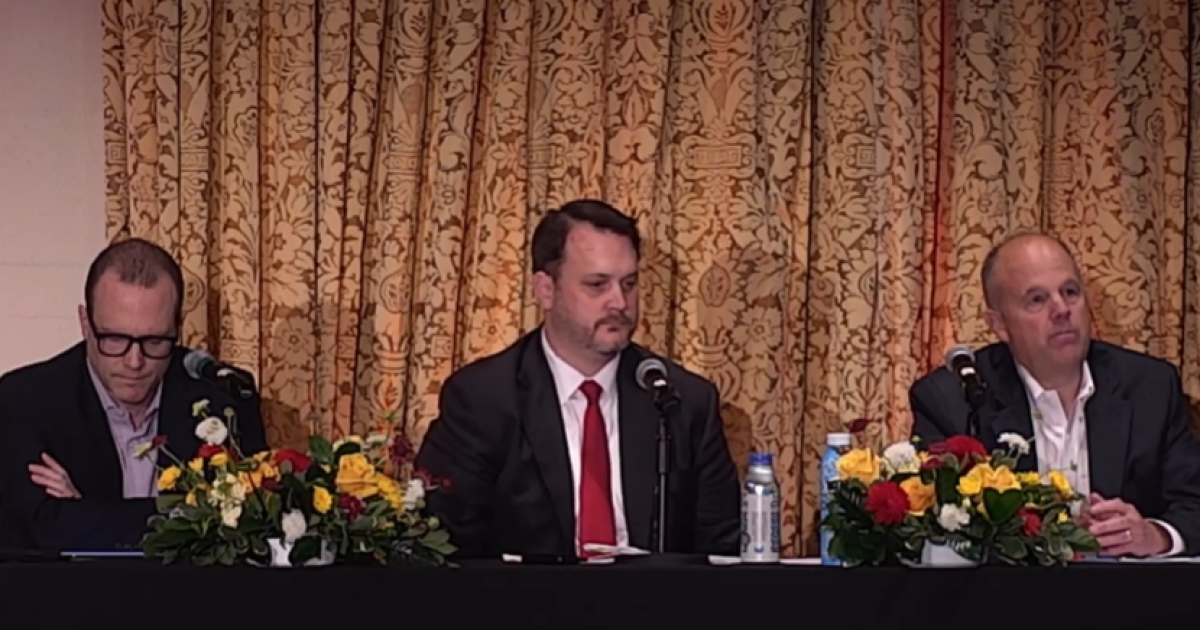Close personal relationships; home is where the scam is; tort trouble; and other highlights of recent tax cases.
Los Angeles: Mathew R. Bowyer, of San Juan Capistrano, California, has agreed to plead guilty to running an illegal gambling business that took in unlawful sports bets, including from professional athletes as well as a former Major League Baseball Japanese-language interpreter who now faces prison time.
Bowyer operated an unlicensed and illegal bookmaking business that focused on sports betting and violated a California law that prohibits bookmaking. Bowyer’s gambling business remained in operation for at least five years until October 2023 and at times had more than 700 bettors.
He operated this business out of various locations in Los Angeles and Orange Counties as well as in Las Vegas. Bowyer also employed agents and sub-agents — including casino hosts — who worked for his illegal gambling business who were paid a portion of the losses that bettors incurred.
One of Bowyer’s clients was Ippei Mizuhara, who pleaded guilty on June 4 to one count of bank fraud and one count of subscribing to a false return. Mizuhara was the Japanese-language interpreter and de facto manager of baseball superstar Shohei Ohtani. Mizuhara admitted to stealing nearly $17 million from Ohtani to pay off gambling debts and to failing to pay tax on his gambling income.
Authorities consider Ohtani a victim; Mizuhara’s sentencing is Oct. 25.
From September 2021 to January 2024, Mizuhara placed at least 19,000 bets with Bowyer’s gambling business. During this time, Mizuhara had total winning bets of at least $142,256,769, and total losing bets of at least $182,935,206, leaving Mizuhara owing approximately $40,678,436.
Bowyer admitted in his plea agreement to knowingly and willfully falsely reporting his taxable income to the IRS on his 2022 return: Bowyer reported $607,897 in total income but his unreported income for that year was $4,030,938 — income from his illegal gambling business. Bowyer owes additional taxes of $1,613,280 for 2022, not including interest and penalties.
Bowyer has agreed to plead guilty to operating an unlawful gambling business, money laundering and subscribing to a false return. He faces up to 10 years in prison on the money laundering count, up to five years for the unlawful gambling business and up to three years for the false return.
Madison, Wisconsin: David Swartz, of Highland Park, Illinois, has been sentenced to two years in prison for wire fraud and assisting in the preparation of a false return.
Swartz worked as an unregistered investment advisor and fund manager and had a close personal relationship with his first victim, a resident of Madison. Beginning in January 2009, the victim made regular and periodic investments in Swartz’s investment fund with the understanding that Swartz was conservatively investing.
Beginning in 2018, Swartz began misrepresenting the performance of the fund. When the fund lost significant value in February 2020 due to risky trades, Swartz lied to the victim about the fund’s performance and induced them to invest an additional $150,000. Swartz also produced a doctored Charles Schwab account statement for the fund and a phony K-1 for 2019.
Relying on the falsified document, on Oct. 12, 2020, the victim filed a 1040 for 2019 that substantially overreported capital gains, causing the victim to report owing an unjustified amount of federal income tax.
Swartz, who pleaded guilty in April, was also ordered to pay $181,915 in restitution to the victim.
Bristol, Vermont: Jodi Lathrop has been sentenced to 15 months in prison following her guilty plea to charges of wire fraud and federal tax evasion.
In 2023, a federal grand jury returned an indictment charging Lathrop with 11 counts of mail and wire fraud, four of personal tax evasion and four of aiding the preparation of false corporate returns. Lathrop pled guilty to one count of wire fraud and one of tax evasion.
Between 2014 and 2020, she embezzled from Claire Lathrop Band Mill, a logging and wood chipping business, while serving as the company’s office manager and bookkeeper. She used company credit cards to make personal purchases and used company money to pay off personal credit cards and other personal expenses. Lathrop falsely recorded unauthorized checks in company books and caused the company to file returns that falsely deducted Lathrop’s personal expenses as legitimate business expenses.
She was also ordered to pay some $479,000 in restitution and a $15,000 fine and two years of supervised release after her prison term.
Rockwood, Pennsylvania: Resident Jason R. Svonavec has been sentenced to a year and one day in prison, to be followed by one year of supervised release, and ordered to pay a fine of $40,000 and restitution of $207,378 (which has already been paid) to the IRS on his conviction of tax evasion and filing false income tax returns.
Svonavec evaded taxes in 2017 by illegally expensing the construction of his home in Somerset, Pennsylvania, through entities he operates called Heritage Coal and Natural Resources LLC and Banshee Crane. In 2018, he filed a tax return reporting false tax deductions for Heritage Coal.
Scranton, Pennsylvania: Robert J. Powell, of Palm Beach, Florida, has pleaded guilty to tax evasion in connection with substantial legal fees he earned while associated with a local law firm.
Powell sought to dodge a substantial federal tax bill for 2016 by using nominee bank accounts, causing an accountant to file a request for a filing extension that falsely reported zero estimated tax liability for 2016 and making false statements during an IRS audit in 2019.
Powell’s license to practice law was suspended in 2009 and he was disbarred in 2015. In 2009 he relinquished his ownership of the Powell Law Group but retained the right to collect 90% of the remainder of any future fees collected by the firm after firm expenses.
The Powell Group represented thousands of plaintiffs in a mass tort litigation in 2015 for which Powell was expected to receive some $120 million in attorneys’ fees. Prior to the attorneys’ fees disbursement, the Powell Group and its co-counsel used those future legal fees as collateral to obtain a series of loans totaling more than $125 million.
Instead of depositing the loan money into the firm’s bank accounts and paying firm expenses, Powell directed the loans to nominee bank accounts under his control then used the money for personal debts and expenses, as well as his and his former law partner’s personal benefit. In June 2016, most of the attorneys’ fees were finally disbursed and the loans repaid.
Still, Powell did not file a personal income tax return and pay taxes on the receipt of the fees in that year. After the initial disbursement and through October 2019, an additional $12 million in attorneys’ fees was distributed and the Powell Law Group’s share continued to be directed into nominee bank accounts that Powell controlled. Powell personally received an additional $3.6 million of the fees. For 2010 through 2022, Powell did not file income tax returns despite receiving and spending other personal income.
In 2019, when the IRS commenced an audit, he lied to revenue agents to conceal his income and expenditures for 2014 through 2016, claiming that his only source of funds were loan advances, that he and his spouse did not have signature authority or control over other bank accounts and that he had no ownership in any corporations.
Powell agreed to pay full restitution to the IRS.
Morgantown, West Virginia: Dr. David M. Anderson has admitted to filing a false return.
He filed false tax returns that understated his taxable income, causing a loss to the IRS of $143,599.
Anderson faces up to three years in prison.


 Personal Finance1 week ago
Personal Finance1 week ago
 Economics1 week ago
Economics1 week ago
 Economics6 days ago
Economics6 days ago
 Economics1 week ago
Economics1 week ago
 Economics6 days ago
Economics6 days ago
 Finance6 days ago
Finance6 days ago
 Economics6 days ago
Economics6 days ago
 Economics4 days ago
Economics4 days ago











